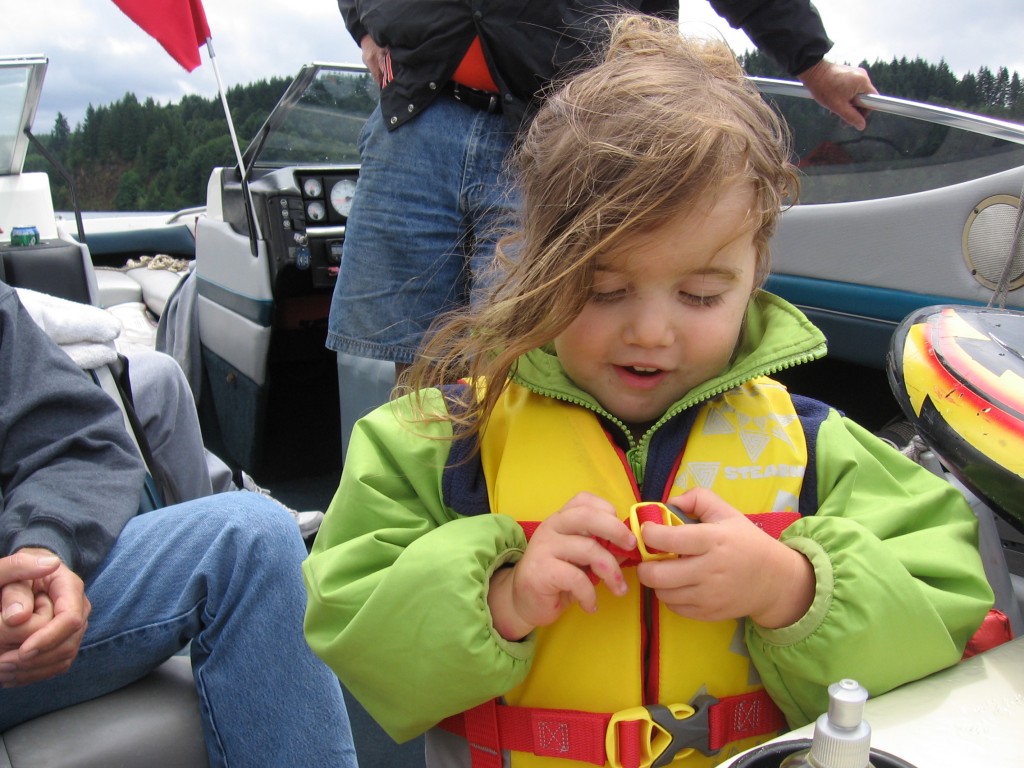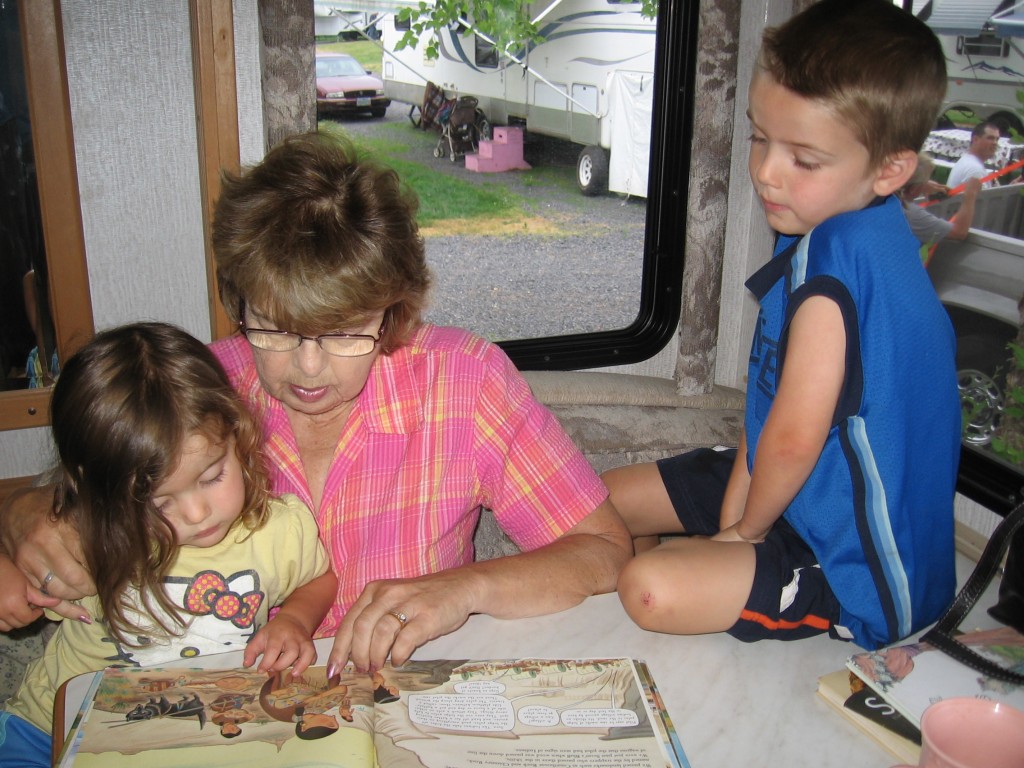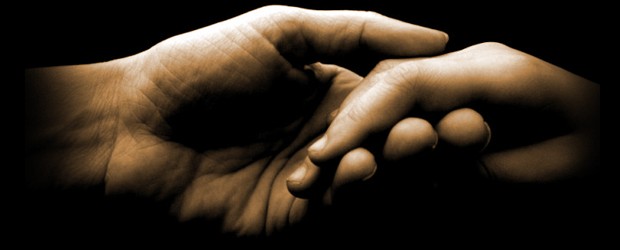Week's end with thanks
- Family blueberry picking.
- Bumping into friends.
- 33 delicious pounds. Probably 25 lbs. now …
- Crazy answers to prayer.
- Grace.
- Generosity.
- Kindness.
- Provision.
- His hand.
- Interesting turn of events.
- Anticipation.
- Drive to Bend.
- Hugging Mama.
- Kids so excited.
- Grace. (I think I listed this twice. I’m doubly grateful for it.)
- Understanding.
- Praying together.
- Fresh starts.
- Lorraine.
- Old friends. Really old friends.
- Reminiscing about 5th grade.
- Lounging around the pool.
- Conversation around chopping vegetables.
- Foot rubs.
- A place to sleep.
- Warmth.
- Hummus.
- Mountain views.
- Tickling their feet in the car.
- Silly songs.
- Trusting Him with it all.
#11 Clean as you go {52 bites}
I sat down just now and typed out this title, then realized there were lunch dishes still in the sink and dried clothes in the dryer.
Apparently I need to read this post.
I’m happy to say I got up, did the lunch dishes, folded the clothes, and even put them away (applause, please!) before finishing this post. Yes, I’m trying.
We all know it’s true. It’s so much easier to keep a house clean than it is to get a house clean. If we “stay on top” of things, we’re saved a lot of grief–and hours–scraping crusty dishes, sorting mountainous piles of foul-smelling socks, and folding cold, wrinkly clothes from the dryer. It does feel so good to wake up in the morning to a clean home; I find that it dramatically impacts my outlook on the day–whether I feel energized or overwhelmed.
But all that said, I still struggle to clean as I go. And no matter how many good excuses I have, I want to grow in this area. Tsh makes a simple list of the “clean as you go” daily items, and how much time they take–just for perspective on how little time it really takes to keep up:
- making the bed: 1 to 2 minutes
- decluttering the bathroom counter after getting ready for the day: 1 minute
- wiping off the bathroom mirror and faucet from water marks: 10 seconds
- clearing the dining table from the meal (especially if everyone brings their own plate back to the kitchen): 1 to 2 minutes
- unloading the dishwasher: 3 to 5 minutes
- loading the dishwasher: 5 to 10 minutes
- wiping off the dining table: 1 minute
- wiping off the kitchen counters after cooking: 2 minutes
- throwing away items after using them (envelopes, wrappers, etc.): 5 seconds
- putting the magazine back in the basket after I’ve perused it: 5 seconds
You know the deal though, right? The bottom line is that doing all of this takes discipline and focus. And many of us with young kids are constantly interrupted so it does make things tricky, but we can grow even in modeling for them the habit of taking care of things right away. Even as I finished typing these words my kids finished their quiet playtime and were asking to go outside in the wading pool. I’d love to drop everything and do it–it’s so crazy hot in this house–but I asked them to pick up their books and Legos before we go outside. And now I need to deal with the whining that ensued and the fact that it’s 4:30pm and everyone is tired, sweaty, and needing a break. Time for this Mama to sign off!
So, I’m growing with you — Tsh suggests taking 15 minutes every day to declutter and clean as you go. This is my goal — 15 minutes in the morn and 15 minutes at night.
Please share! How do you “clean as you go” and stay on top of things in your home? I would love to hear your words of wisdom! Have a great weekend, and thanks for reading!
What to expect when you're expecting …
Whether we know it or not, we’re all expecting. Expecting something.
~
You consider a decision. You pray about it. Perhaps you even fast. You wait for God and sense His leading. You check it out with His Word. You act. You obey. The result?
Failure. Or frustration. Or misunderstanding. Or just total confusion as to how your following God could lead to such a mess.
Have you ever been there?
The fact that we (I) find this so disturbing or distressing reveals the fact that we believe one of the most subtle and widely held false-teachings in our world.
That obeying God means smooth sailing waters and white teeth.
Although there are many individual faiths in the East, we tend to clump them all together as “Eastern Religion” because they have so many commonalities. I’d suggest that there is also a “Western Religion” that is not true Christianity, but a strange cocktail of Christian-ish ideas and American ideals. The defining characteristic of Western Religion? That following God means things will go my way.
This is the religion preached by many. That the “favor of God” will make all obstacles melt away and people will do what I want and I’ll have health, wealth, and popularity.
But I can’t find this anywhere in Scripture. Yes, when we live wisely we will often reap rewards in this life. Absolutely. But when Paul obeyed God he was stoned, dragged out of the city, shipwrecked and nearly starved. When Jesus obeyed God He was hung on a cross. The promise, far from relative ease and a nice new car to drive, is that those who desire to live godly lives will suffer persecution.
That is the promise for us.
But I’ve never seen that one on a coffee mug.
I don’t like that promise any more than you do. I don’t like that that’s what I should expect when I’m expecting. But I do believe the reason that I’m often perplexed, disappointed, or surprised by hardship is that I’ve following “Western Religion” and not following Christ. Christ says to take up my cross. Christ says the world will hate us because it hated Him. Christ says in this world we will have troubles. Christ says His Kingdom is upside down. The first shall be last. The meek shall inherit the earth.
Friends, we must shape our beliefs and expectations based on God’s WORD, not on Western Religion or American idealism. It is so easy for the world’s philosophy to infiltrate our hearts and minds and slowly lead us to false expectations … to bitter disappointment.
So what should we expect?
Opposition. Persecution. Obstacles. Suffering. Trials. Conflict. Hardship. Storms. But most of all …
Except to see and encounter Him in the midst of it all.
He is found in the midst of the storm, the suffering, the obstacle. When we run from those things, we run from Him. He is there.
I expect to face these things, and I expect to see His face there.
That’s what I can expect.
{Praying that you can see HIM today, in whatever storm you are facing. Bless you, and thank you for reading.}
When you must be silent …
“Light griefs are loquacious, but the great are dumb.”
-Seneca
Often the hardest thing to say is nothing. Sometimes we are silent because the grief itself is so great. Other times we are silent because we must be, which makes a small grief great.
This week we looked at disappointments that simply last a long time, we looked at disappointments that don’t appear to be disappointments, or at least that others do not understand.
Our third and final difficult disappointment from the life of Hannah would be:
3. Those that we must bear in silence (1 Sam. 1:13).
From our narrative here, we just see this one verse of silence:
“As she continued praying before the LORD, Eli (the priest) observed her mouth. Hannah was speaking in her heart; only her lips moved, and her voice was not heard” 1 Sam. 1:13).
Of course her voice was not heard, because this was a very personal, very private issue. There’s no way she could bear her soul out loud, in front of a male priest, about her reproductive issues and the jealousy issues between her and her husband’s mistress. And, since she shared her husband and her home with another woman, she probably had to keep quiet about it at home too. Consider that they probably all lived together! It’s not like she could confide to Peninah or her husband about the problem–they were the problem.
Some of the hardest disappointments are those which we simply cannot talk about. This can be especially difficult in ministry, or I’m sure for those who with very public vocations. Or even just a particular trial or disappointment which is personal in nature. How many women do I know who have suffered silently through the horrible disappointment of a husband who dabbles in pornography? Yes, they may be able to confide in one person, but for the most part the trial must be borne silently. That is right and appropriate, but nonetheless terribly difficult.
Whenever my kids get scratches and scrapes they immediately come to me. They point out the owie, get the kiss and a band-aid, and are on their way. So often we just wish we could run to someone and show them our owie, get a kiss and a bandaid and we’d be ok, but sometimes our owies must be kept private, and that silent suffering can often be the worst kind.
Thankfully we have a friend who is closer than a brother, amen? Someone to whom we must confide, must pour out our hearts, someone with whom ALL of our secrets are perfectly safe. It is altogether appropriate to blab all your garbage to Him. He can take it. He wants to take it.
“Pour out your heart to him.” Psalm 62:8
If you are in the middle of a disappointment that you must bear in silence, I pray God encourages you with this today. Yes, this is one of the most difficult forms of disappointment–yes. And yes, your dear Father intends for you to pour out all that disappointment at the safety of His feet. All your secrets are safe with Him.
Bless you, bless you, bless you, for reading. I am pleading with God to encourage you today. I love you for reading and seeking Him. Have a beautiful day.
When no one understands …
“What on earth do you have to be sad about?”
“What’s wrong with you?”
“What’s your deal?”
Yesterday we looked at disappointments that simply last a long time. Today Hannah will show us another type of difficult disappointment. I hope and pray you’ve never experienced it, but chances are you have.
2. Those that don’t appear to be disappointments, or at least that others do not understand (1 Sam. 1:8).
Check out 1 Samuel 1:8: Interestingly, God used this verse in my lifeWhen God Broke My Heart in a completely opposite way than He showed me this time. Isn’t it crazy how that happens? This time I saw Elkanah’s words in a whole new way:
A human way.
Consider what we talked about yesterday, Hannah cannot have children, and has endured years of torment because of Elkanah’s other wife Peninah. She is not just devastated because of being barren but tormented because of this other horrible women who provokes her year after year. Only a woman can understand how horrible this must have been–no one knows how to hurt women like other women, amen? I know when I’m in the midst of disappointment, I turn to my dear husband for comfort and encouragement. So in the midst of Hannah’s disappointment, how does her husband respond?
“And Elkanah, her husband, said to her, “Hannah, why do you weep? And why do you not eat? And why is your heart sad? Am I not more to you than ten sons?” (1 Sam. 1:8)
And right now I want to throw my shoe at him.
I have absolutely never seen this verse before in this light and now I want to strangle Elkanah with my shoestring. Am I not more to you than ten sons?? Well, Elkanah, not sure how to put this nicely … NO you’re not. Because in this society bearing children was everything, and bearing sons was everything, and here this polygymous man must have seen the torment that was going on in his home, and yet he doesn’t understand Hannah’s sorrow. He doesn’t get it. Why are you sad?
Translated to our day:
What on earth do you have to be sad about?
What’s wrong with you?
What’s your deal?
How comforting is that? How encouraging? How cherished does that make you feel? Yeah, same here. Not at all.
Sometimes the most difficult disappointments are the ones that others simply do not understand.
This was why my particularly difficult period of disappointment came while we lived with my parents. God was stripping me away of everything–in my heart. I felt like I was dying. But on the outside it didn’t make any sense. Everyone just always thought how lucky we were to have such nice parents that let us live with them (and we DO–I adore them, the whole world knows that). But the disappointment I was feeling was so internal and nobody seemed to understand. Though certainly no one meant to, I felt a constant What’s the big deal?
Have you ever been there? Ever struggled through a disappointment that didn’t translate to those around? Or, sadly, has the one closest to you, perhaps even your spouse, looked at you and said, “Come on! What’s the big deal? What do you have to be sad about?”
Thankfully, I have never, ever, ever, had my husband treat me like that. But sweet friends, I know so many of you have. And I pray that this simple message can help you know–the stuff you feel is hard … it IS hard. Sometimes the greatest gift can simply be another person listening and saying, “Wow. Yeah, that would be hard for me too.”
And the greatest gift is that that other person is Christ Himself:
“This High Priest of ours understands our weaknesses…” Heb. 4:15
He understands when no one else does. I pray this translates to your heart today. Thanks for reading.
When the road is long …
Last week a friend called. “I’m weary,” were her words.
And with good reason. She is in a long trial. Not a life-threatening one like Shawna, but a long one nonetheless. A situation filled with disappointment, ambiguity, uncertainty, and most of all–length of time.
I’d like to take a few days to talk about disappointment. Not because I love the topic, but because God is reminding me afresh that how we engage with the inevitable disappointments in our lives with determine whether we live a life experiencing the fullness and abundance of fulfillment, or whether we live a life characterized by defeat, pessimism, and cynicism.
I’m specifying disappointment as opposed to suffering because while suffering is real, on a daily basis we are more likely to deal with disappointment than true suffering.
We’re going to face disappointment, and face it often, so we better figure out what to do with it. Amen?
As we begin our discussion, I’d like to point out three specific types of disappointment that can be especially difficult, as seen in the life of Hannah in 1 Samuel 1. The first?
1. Those which simply last a long time.
I’ve shared before that for a season of 50 months, God had Jeff and I in a season of disappointment. It was like He just had a hundred creative ways to show us what disappointment felt like. We had a lot of chance to study it because were starting straight at it all the time! Thankfully, we never faced a life-threatening disease or any of those kind of devastations, but it was a steady stream of disappointment. Again and again and again.
Have you ever been there?
Hannah was there. Hannah was married to Elkanah, who also had a second wife Peninah. Peninah had children, and Hannah had none. Sadly, in that patriarchal society, women were only valued for their ability to produce offspring–namely, sons. Even today in the middle east, a woman’s value can be simply reduced down to the number of sons that she has. You know what that makes Hannah? A zero. Without sons, Hannah is a zero. But that’s not all of her disappointment. So not only does Hannah have to suffer through having her husband married to another woman who bears sons while Hannah is barren, but this other woman torments her and provokes her because of her inability to bear children. Consider how this would have been a disappointment every single month. Some of you have gone through the struggle of infertility and know exactly how the cycle of disappointment feels. Every single month, hoping for conception, then getting disappointed again. Every single month. For how long?
“So it went on year by year.” (1 Sam 1:7)
Years.
A long bout with disappointment isn’t just about one bum deal. It’s that the days turn into weeks turn into months turn into years and the string of disappointments wear down our souls. John Piper says that
perhaps the most trying circumstances are simply those that last a long time. A quick and painful blow can often be endured, while the gnawing ache of disappointment wears us down to the core.
Have you ever been there? Even a small disappointment, when dealt over and over and over, can wear down your soul until it’s raw. A spouse always responding sarcastically, a relative always pushing a certain button, an interaction with a particular person always leaving you hurt, a desire or dream repeatedly upset, a vicious cycle of getting your hopes up and having them dashed yet again.
No matter how small the disappointment, it can add up when you give it long enough.
If you find yourself relating to this, I have great news. God can transform our disappointment. His greater purpose for us is not disappointment, but fulfillment. Will you stick with me the next few weeks as we journey along this road, I believe God has some wonderful nuggets in store. In the meantime, His words:
The LORD is the everlasting God,
the Creator of the ends of the earth.
He will not grow tired or weary,
and his understanding no one can fathom.
29 He gives strength to the weary
and increases the power of the weak.
30 Even youths grow tired and weary,
and young men stumble and fall;
31 but those who hope in the LORD
will renew their strength.
They will soar on wings like eagles;
they will run and not grow weary,
they will walk and not be faint. Is. 40:28-31
Today, tomorrow, and Wednesday we’ll be revisiting these posts on disappointment–they are applicable again and always, I pray God can use them to speak some nugget to your heart as well. How can we be praying for you this week? Thanks, as always, for reading.
Week's end with thanks
- Boating! Dutch jumping right in the lake!
- Kids reading with Oma in the motorhome.
- Flat of berries on my doorstep.
- Answers to prayer.
- Generous neighbors.
- Horses getting out, into our yard! SO exciting for the kids!
- Relay races.
- Good friends.
- Salads from the garden.
- Camping!
- Unplugged.
- Good news.
- A good little buddy letting Dutch borrow Woody. HOURS of play, his new favorite thing.
- Reading, and re-reading the cowboy books again and again.
- Roping, branding, herding, riding, busy life here on the ranch.
- Seeing a good friend after way too long.
- Looking ahead.
- Being made new.
- That He will make all things new.
- Running.
- Mint-lemonade.
- Generous hosts.
- Berries!
- Peaches!
- Pineapple!
- God is so abundant with the fruit He gives us! Thank you, Lord!
- Praying together.
- Knowing He hears.
- Believing.
- Trusting.
- Seeing with eyes of faith.
- Knowing that when we get to unknown, where we cannot see, He will be there.
#32 Go on dates with your kids {52 bites}
I can still remember our first date.
Aristocats. It was my first movie in the theater. I was six-years-old. I wore my favorite outfit and felt so fancy, so grown up walking into the theater, the cold air-conditioned air on my face, the smell of popcorn engulfing me as we walked in. I slipped my tiny hand into my dad’s large one, and felt like a princess that night.
I still do.
It’s amazing how much impact our opposite-sex parent has on our lives. Tsh quotes Dr. Meg Meeker as saying, “fathers have a power in a daughter’s life that mothers just don’t have. A girl’s first experience of love with her dad puts a template over her heart regarding what male love is all about.” Research is constantly showing us that the better a girl’s relationship is with her father the less promiscuous she tends to be. I’m convinced that my dad’s faithful, tireless, amazing love, affection and attention during my young years kept me from a lot of grief in my high school years. (Not perfect here, just saying his love made me feel secure and confident.)
No pressure, right? This isn’t to say that if your daughter has made poor choices that it’s all your fault. It’s simply to say that we, as parents, must take very seriously the need to date our kids. To take the initiative to Love them Alone and to woo them, dote on them, and take special opportunities to spend time with them one on one.
And don’t panic if you think it’s too late. I confess I am encouraged right now as I remember that my first date with my dad was when I was 6. Sometimes I feel like, as we’re just now starting to do this, that we’re too far behind somehow. Ha! Where does that guilt come from? It’s never too late.
So what is the best time to start dating your kids?
Now.
Tsh gives some fun ideas here:
• Hike nearby trails
• Catch a matinee
• Go ice skating
• Visit a local museum or zoo
• Head to a low-key restaurant
• Walk to the park
• Grab some ice cream
• Have a picnic
• Read books together at the library
And since my kids both tend to be such homebodies, I’m over here at Frugal Living NW today, sharing the lessons I’m learning about frugal family fun. Check it out, and have some one-on-one “date time” with that special kid in your life. As I wrote this post I was snuggling on the couch with my boy, him reading a book and talking to me as I type. It took a long time to write because he asked me 100 questions, but he thinks we’re having a date and that’s what matters. 🙂 Now, I’m off to play Cowboys with my little man, enjoy your kid-dates, and thanks for reading.
Question for you: What are your favorite “kid date” ideas? What are your favorite ways for showing your children you care? Thanks for the ideas!
To be or to be known? (Shifting the focus.)
It took me by surprise the first time I read the billboard advertising the MBA program for a well-known Christian university in our area:
BE KNOWN AS A TRUSTED LEADER.
Hm. Ok. That’s good. Trusted leaders are good. Goodness knows we could use more trusted leaders in the business world, and I’m glad that this university is training a few. However, two words bothered me, they stood out awkwardly out of place, inappropriate.
KNOWN AS?
Be known as a trusted leader? Is that the most important goal? Isn’t the real goal to be a trusted leader? Is it more important to be a trusted leader or be known as a trusted leader?
I get why they advertise that way. Appealing to the business world, it is important to be known, recognized–that’s how you earn business. But ultimately, for a believer, even a believer in the business world (since there’s no sacred-secular duality!), isn’t it more important to be something than to be known as something?
I’m not throwing stones here, at least I’m not throwing stones that I haven’t already thrown at myself. A few months ago I was reading The Lost Art of Listening, and reading some convicting material on learning to listen well. The author pointed out that most of us want to be “good listeners” more than we want to actually listen.
See the difference? Where is the focus?
On us.
Ouch.
When I want to “be a good listener” what I’m really wanting is for people to think of me as good listener. I want them to want to talk to me, to value me, to think I’m a good friend. The author even goes so far as to point out that sometimes while we’re listening we’re actually thinking about ourselves and how we’re trying to be a good listener. We can have all the right responses–nodding the head, saying mmhmmm, and making eye contact. But as long as we are focused on ourselves, We’re not truly listening.
We cannot truly listen and empathize until we suspend our focus on self and choose to focus solely on that person.
And, I would suggest, we cannot be trusted leaders until we quit trying to “be known as a trusted leader” and begin focusing our attention on the needs of others and how we can serve them through leading them to Christlikeness, wholeness, health. As long as our focus is on ourselves, we aren’t much use as a leader!
It’s subtle, but it’s a small and important steps toward growing more like Jesus. He is the ultimate example of suspending self for the good of others (Phil 2). Instead of being known as a good church, I want to be one, serving people and leading them to the cross. I don’t want to be known as a good wife or mother, I just want to be one. Serving the needs of my man and my kids, helping them become more and more like Jesus. I don’t want to be known as a good friend, I just desperately want to be one, providing strength and support and love to those I am honored to name friend.
Friends, we can never go wrong when we take small steps to continually shift the focus off ourselves and onto Christ and others.
Whether or not we’re known for it, let’s be it. Amen? Amen.
{Thank you so much for reading.}
As you walk along the road today …
On one occasion an expert in the law stood up to test Jesus. “Teacher,” he asked, “what must I do to inherit eternal life?”
“What is written in the Law?” he replied. “How do you read it?”
He answered, “‘Love the Lord your God with all your heart and with all your soul and with all your strength and with all your mind’; and, ‘Love your neighbor as yourself.’”
“You have answered correctly,” Jesus replied. “Do this and you will live.”
But he wanted to justify himself, so he asked Jesus, “And who is my neighbor?”
In reply Jesus said: “A man was going down from Jerusalem to Jericho, when he was attacked by robbers. They stripped him of his clothes, beat him and went away, leaving him half dead. A priest happened to be going down the same road, and when he saw the man, he passed by on the other side. So too, a Levite, when he came to the place and saw him, passed by on the other side. But a Samaritan, as he traveled, came where the man was; and when he saw him, he took pity on him. He went to him and bandaged his wounds, pouring on oil and wine. Then he put the man on his own donkey, brought him to an inn and took care of him.The next day he took out two denarii and gave them to the innkeeper. ‘Look after him,’ he said, ‘and when I return, I will reimburse you for any extra expense you may have.’
“Which of these three do you think was a neighbor to the man who fell into the hands of robbers?”
The expert in the law replied, “The one who had mercy on him.”
Jesus told him, “Go and do likewise.”
Martin Luther King Jr. reflected on this story: “The first question that the priest … and the Levite asked was, “If I stop to help this man, what will happen to me?” But the Good Samaritan … reversed the question: “If I do not stop to help this man, what will happen to him?”
Perhaps right now you are walking along your day. Cruising right on through. You’re about to make breakfast or perhaps you’re on lunch break, or you just tucked your children (finally!) into bed for the night. And perhaps as you walk along the road, just one click will enable you to see that there is a man or woman or small child lying on the side of the road, right where you are walking through your normal day today. Perhaps as you click again you’ll be able to see the person’s face, and see that they are in need. Perhaps a few more clicks will enable you to virtually kneel down, embrace them, help them up, and by prayer and a few dollars, get them to a place of help, healing, wholeness.
All that can happen from where you sit right now.
Will you take a moment, right now, to stop along the way?
I was recently acquainted with Gospel for Asia’s Compassion Ministries. Through these links we are able to virtually kneel down and help those, the wounded man, woman, or child along the road, who desperately needs love and medical attention. Will you take a moment to click through these links and acquaint yourself with the sweet opportunity to love the way Jesus loved? Thanks for suspending your own needs, just for a moment, to give a hand up, and love someone through practical means, in Jesus’ name. Thanks for reading.
Compassion Services Main Page http://www.gfa.org/cs/
Leprosy Ministry http://www.gfa.org/cs/leprosy-ministry/
Medical Ministry http://www.gfa.org/cs/medical-ministry/
Slum Ministry http://www.gfa.org/cs/slum-ministry/
Flood/Disaster Relief http://www.gfa.org/flood/














